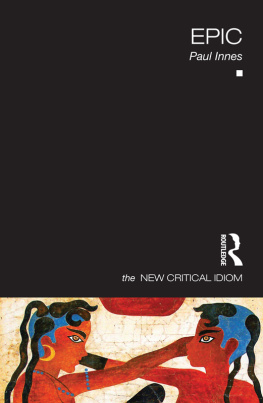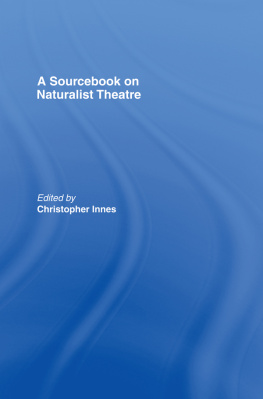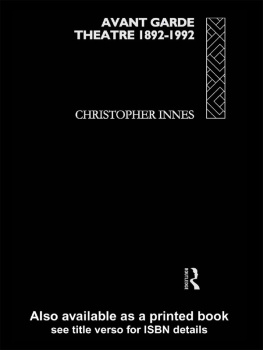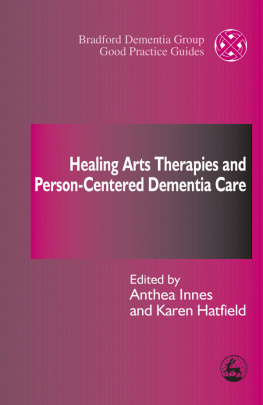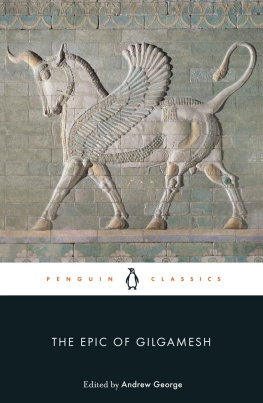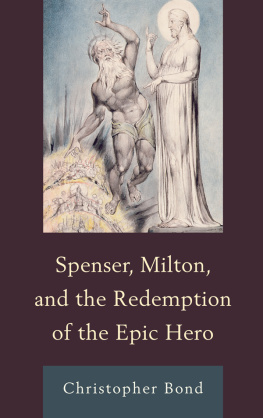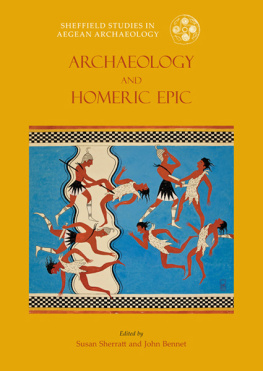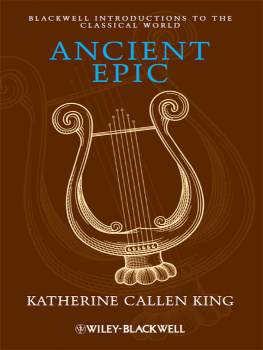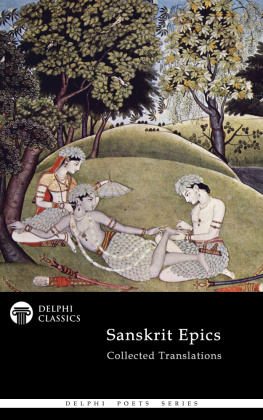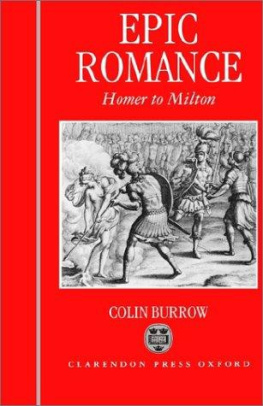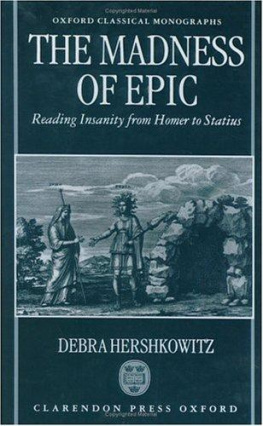EPIC
This student guidebook offers a clear introduction to an often complex and unwieldy area of literary studies. Tracing epic from its ancient and classical roots through post-modern and contemporary examples this volume discusses:
- a wide range of writers including Homer, Virgil, Ovid, Dante, Chaucer, Milton, Cervantes, Keats, Byron, Eliot, Walcott and Tolkien
- texts from poems, novels, childrens literature, television, theatre and film
- themes and motifs such as romance, tragedy, religion, journeys and the supernatural.
Offering new directions for the future and addressing the place of epic in both English-language texts and World Literature, this handy book takes you on a fascinating guided tour through the epic.
Paul Innes is a senior lecturer at the University of Glasgow. He has published widely on Shakespeare, early modern literature and literary theory.
THE NEW CRITICAL IDIOM
SERIES EDITOR: JOHN DRAKAKIS, UNIVERSITY OF STIRLING
The New Critical Idiom is an invaluable series of introductory guides to todays critical terminology. Each book:
- provides a handy, explanatory guide to the use (and abuse) of the term;
- offers an original and distinctive overview by a leading literary and cultural critic;
- relates the term to the larger field of cultural representation.
With a strong emphasis on clarity, lively debate and the widest possible breadth of examples, The New Critical Idiom is an indispensable approach to key topics in literary studies.
Also available in this series:
Adaptation and Appropriation
by Julie Sanders
Allegory by Jeremy Tambling
The Author by Andrew Bennett
Autobiography second edition by
Linda Anderson
Class by Gary Day
Colonialism/Postcolonialism second
edition by Ania Loomba
Comedy by Andrew Stott
Crime Fiction by John Scaggs
Culture/Metaculture by Francis Mulhern
Dialogue by Peter Womack
Difference by Mark Currie
Discourse second edition by
Sara Mills
Drama/Theatre/Performance
by Simon Shepherd and Mick Wallis
Dramatic Monologue by Glennis Byron
Ecocriticism second edition
by Greg Garrard
Elegy by David Kennedy
Genders second edition
by David Glover and Cora Kaplan
Genre by John Frow
Gothic by Fred Botting
The Historical Novel by Jerome de Groot
Historicism second edition
by Paul Hamilton
Humanism second edition
by Tony Davies
Ideology second edition by
David Hawkes
Interdisciplinarity second
edition by Joe Moran
Intertextuality second
edition by Graham Allen
Irony by Claire Colebrook
Literature by Peter Widdowson
Lyric by Scott Brewster
Magic(al) Realism by
Maggie Ann Bowers
Memory by Anne Whitehead
Metaphor by David Punter
Metre, Rhythm and Verse Form
by Philip Hobsbaum
Mimesis by Matthew Potolsky
Modernism second edition
by Peter Childs
Myth second edition
by Laurence Coupe
Narrative by Paul Cobley
Parody by Simon Dentith
Pastoral by Terry Gifford
Performativity by James Loxley
The Postmodern by Simon Malpas
Realism by Pam Morris
Rhetoric by Jennifer Richards
Romance by Barbara Fuchs
Romanticism second edition
by Aidan Day
Science Fiction second edition by Adam Roberts
Sexuality second edition
by Joseph Bristow
Stylistics by Richard Bradford
Subjectivity by Donald E. Hall
The Sublime by Philip Shaw
Travel Writing by Carl Thompson
The Unconscious by Antony Easthope
EPIC
Paul Innes

First published 2013
by Routledge
2 Park Square, Milton Park, Abingdon, Oxon OX14 4RN
Simultaneously published in the USA and Canada
by Routledge
711 Third Avenue, New York, NY 10017
Routledge is an imprint of the Taylor & Francis Group, an informa business
2013 Paul Innes
The right of Paul Innes to be identified as author of
this work has been asserted by him in accordance with
sections 77 and 78 of the Copyright, Designs and Patents Act 1988.
All rights reserved. No part of this book may be reprinted or reproduced or utilised in any form or by any electronic, mechanical, or other means, now known or hereafter invented, including photocopying and recording, or in any information storage or retrieval system, without permission in writing from the publishers.
Trademark notice: Product or corporate names may be trademarks or registered trademarks, and are used only for identification and explanation without intent to infringe.
British Library Cataloguing in Publication Data
A catalogue record for this book is available from the British Library
Library of Congress Cataloging in Publication Data
Innes, Paul, 1964
Epic / Paul Innes.
p. cm. (The new critical idiom)
Includes bibliographical references and index.
1. Epic literature History and criticism.
2. Epic films History and criticism. I. Title.
PN56.E65I56 2013
809.9357 dc23
2012033101
ISBN: 978-0-415-58738-9 (hbk)
ISBN: 978-0-415-58739-6 (pbk)
ISBN: 978-0-203-14825-9 (ebk)
CONTENTS
SERIES EDITORS PREFACE
The New Critical Idiom is a series of introductory books which seeks to extend the lexicon of literary terms, in order to address the radical changes which have taken place in the study of literature during the last decades of the twentieth century. The aim is to provide clear, well-illustrated accounts of the full range of terminology currently in use, and to evolve histories of its changing usage.
The current state of the discipline of literary studies is one where there is considerable debate concerning basic questions of terminology. This involves, among other things, the boundaries which distinguish the literary from the non-literary; the position of literature within the larger sphere of culture; the relationship between literatures of different cultures; and questions concerning the relation of literary to other cultural forms within the context of interdisciplinary studies.
It is clear that the field of literary criticism and theory is a dynamic and heterogeneous one. The present need is for individual volumes on terms which combine clarity of exposition with an adventurousness of perspective and a breadth of application. Each volume will contain as part of its apparatus some indication of the direction in which the definition of particular terms is likely to move, as well as expanding the disciplinary boundaries within which some of these terms have been traditionally contained. This will involve some re-situation of terms within the larger field of cultural representation, and will introduce examples from the area of film and the modern media in addition to examples from a variety of literary texts.
A CKNOWLEDGEMENTS
Many thanks are due to Emma Joyes and Niall Slater at Routledge for their unfailing editorial support and their understanding of academics and their foibles. However, my main thanks go to my wife, Cathy, and her even greater ability to put up with me in particular. This book is dedicated to her.
Next page
